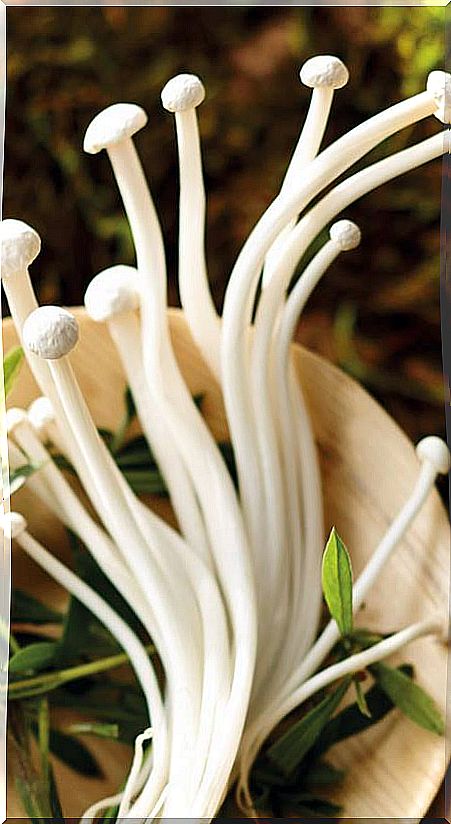10 Therapeutic Mushrooms Backed By Science
Traditional medicine has advised its therapeutic use for millennia. They have substances that protect us from tumors, inflammation and Alzheimer’s, enhancers of the immune system and regulate blood glucose, among others. Scientific research supports them.

About 90 years ago, Dr. Fleming discovered the antibiotic capacity of fungi. Today we know much more about these organisms. Among them are mushrooms, which have been synthesizing chemicals for millions of years to defend themselves against bacteria, viruses and other pathogens.
The difference between natural medicine and scientific medicine is increasingly tenuous. Natural medicine is based on empirical experiences of healing carried out by several generations of different cultures over centuries with substances provided by nature.
But today there are thousands of scientific studies that support this empirical background. This is particularly true in the case of medicinal mushrooms, whose therapeutic properties have been scientifically proven using the same pharmacological methodologies that apply to the synthetic molecules of the remedies prescribed by doctors.
Mushrooms stimulate defenses and act on genes
Some of the substances contained in mushrooms do not act directly against the pathogen, but rather stimulate our body’s defense mechanisms, even at the epigenetic level.
That is, in some cases they modulate the expression of certain genes, either to inhibit harmful processes, or to activate certain silenced genes that help maintain our health.
Among the many substances they contain, phenolic compounds and different types of polysaccharides, lectins, lentinians, ergosterol, eritadenine, fibrinolytic enzymes, various triterpenes, adenosine, hydrating trehalose and many others stand out.
Besides, it is necessary to underline the contribution of certain minerals that are practically absent in the conventional diet and that are vital for our metabolism.
The power of synergy: very broad beneficial effects
Unlike the agents synthesized by pharmaceutical chemistry, natural remedies, and especially medicinal mushrooms, have numerous and effective healing synergies in the human body.
For example, the popular pharmacy Sintrom is used as an antithrombotic and that is its only effect. But a reishi extract doesn’t just thin the blood; In addition, it lowers blood pressure and has anti-inflammatory, antidiabetic, hematopoietic (enhances the generation of blood cells) and liver-protective effects, among others.
The 10 easiest to use mushrooms with proven effects
There are about 250,000 species of mushrooms (not counting molds and yeasts), but only about a thousand have been studied for their therapeutic properties and only a hundred have been endorsed by scientific experimental methods. Of all of them, we have chosen those that have more scientific studies and that are easy to find in herbalists.
Reishi: the mushroom of longevity
Although not edible, Ganoderma lucidum extracts have shown many therapeutic properties, among which their anti-aging actions stand out, derived from their enhancing effects on the immune system and the stimulation of the production of new blood.
A 2016 Cochrane review – a major database of evidence-based studies – states that reishi can be administered alongside conventional cancer treatment due to its potential to stimulate the immune response to the disease.
Maitake: molecules with antitumor action
Grifola frondosa is used in Japan as a complementary therapy to conventional cancer treatments due to its content of antitumor molecules. The anti-inflammatory and analgesic effects are also significant.
Dr. Hirohaki Nanba has been studying the antitumor effects of fraction D (a drug obtained from beta-glucans in maitake) since 1987. In 2003 he presented a definitive work that proves its efficacy in inhibiting metastases.
Shiitake: antiviral and antibiotic properties
Its scientific name is Lentinus edodes and it is a tasty mushroom with remarkable antiviral and antibiotic properties, to which is added its ability to combat excess cholesterol and triglycerides in the blood. It also has stimulating actions on libido and fertility.
According to studies carried out in Japan, its main polysaccharide, lentinan, stimulates macrophages, T lymphocytes and the synthesis of immunoglobulins that inhibit tumor growth.
Lion’s mane: regenerates neurons
Hericium erinaceus contains substances that stimulate the generation of neuronal growth factor (NGF), with effects against Alzheimer’s and Parkinson’s, as well as depression and anxiety.
The team of Dr. Chia-Wei Phan verified in 2015, through in vitro tests , the enhancing effects of the synthesis of nerve growth factor of extracts of lion’s mane.
Sun mushroom: regulates the immune response
It is a gastronomic delight and, in addition, Agaricus subrufescens Peck shows regulatory properties of the immune system, which allow to combat autoimmune diseases and allergies effectively.
Researchers LK Ellersten and G. Heitland, from the Oslo University Hospital, reported in 2008 that the mushroom extract restores the necessary balance between Th1 and Th2 lymphocytes and can be used both in the prevention and treatment of allergies.
Mushroom-caterpillar: the secret of vitality
The Cordyceps sinensis is little known, but it should be more for its ability to increase vitality, libido and fertility. It is also a kidney protector and stimulator of respiratory capacity.
The sum of beneficial actions of this mushroom is considered effective in delaying aging. Several international experts found in 2011 that it extended the life of laboratory animals by an average of 16%.
Turkey tail: helps against cancer
Another mushroom with a long oriental tradition that is used in supplement form as an adjunct to cancer treatments is Coriolus versicolor, both for the action of its content in antitumor molecules and for its power to stimulate the activity of the immune system.
In 2013, doctors TC Hsieh and JM Wu showed that the mushroom was capable of promoting suicide in tumor cells. In 2003, Dr. RW Tsang had already proven with lung cancer patients that it produced improvements and slowing down the disease.
Enokitake: stabilizes the immune system
Scientific name Flammulina velutipes, it is a precious winter mushroom that, in addition to having a delicate taste and texture, contains several active antiviral and antibiotic principles, while effectively regulating the immune system. This makes it effective against diseases and allergies caused by an exacerbated or weakened immune system.
The team led by Dr. DC Tang, from Monash University in Malaysia, exposed, in a lengthy article published in 2016, the anti-tumor, anti-inflammatory, anti-aging and antihypertensive effects.
Polyporus: prevents urinary infections
The Polyporus umbellatus is a mushroom without gastronomic utility (it is bitter), but in supplement form combines a bactericidal action with diuretic properties, making it effective in urinary infections. But it also stands out for its antitumor and antimetastatic effects, among others.
In 2009, Dr. YY Zhao and his colleagues identified a new molecule, ergone, as the most active diuretic compound in Polyporus . Later studies also discovered that it had an antitumor character.
Oyster mushroom: fights cholesterol
With tasty white meat, Pleurotus ostreatus stands out for its high content of lovastatin, the natural compound that served as a model for the creation of synthetic statins used to combat cholesterol. As if that were not enough, its extract also contains powerful antioxidants and liver protectors.
Clinical trials published in 2011 by Dr. Inga Schneider and her colleagues at the University of Hannover showed that taking one soup a day with dried mushrooms resulted in a significant decrease in total cholesterol and triglycerides in the blood.









